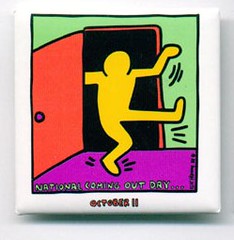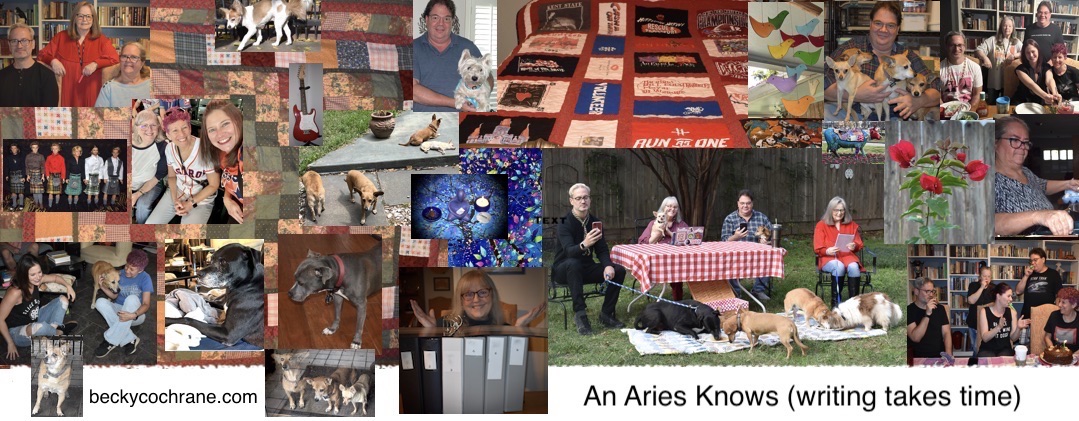
This button was created by Keith Haring to celebrate National Coming Out Day. National Coming Out Day has been celebrated on October 11 every year since 1988, although it wasn’t observed in 2001 out of respect for the one-month anniversary of the September 11 terrorist attacks. Because this year it precedes Button Sunday by one day, I decided to make it today’s button.
Last night we had dinner with The Brides, and completely unrelated to this day of awareness, our conversation turned to the process of coming out. I can’t begin to count how many coming out stories I’ve heard over the years. Each story is as unique as the person who tells it, but one thing never changes: the courage of honesty.
Having never been the one who comes out, it isn’t–and won’t be–my intention or purpose to tell people how, or when, or to whom, they should come out. As a straight ally, I encourage any straight person to learn more about how to be supportive when a friend, coworker, or family member comes out to you. The Internet is replete with resources about coming out. PFLAG (Parents, Families, and Friends of Lesbians and Gays) offers this helpful list:
Do/Don’t
Do listen to what your loved one’s life is like, and what kind of experiences he or she has had in the world.
Don’t blame your own feelings on your loved one.
Do take the time to seek information about the lives of GLBT people from parents of GLBT people, friends of your loved one, literature, and, most of all, directly from your loved one.
Don’t rush the process of trying to understand your loved one’s sexuality or gender identity.
Do get professional help for anyone in the family, including yourself, who becomes severely depressed over your loved one’s sexuality or gender identity.
Don’t assume that your loved one should see a professional counselor or encourage them to participate in “reparative therapy.”
Do accept that you are responsible for your negative reactions.
Don’t criticize your loved one for being different.
Do respect your loved one’s right to engage in loving relationships.
Don’t try to break up loving relationships.
Do try to develop trust and openness by allowing your loved one to be who she or he is without pressure.
Don’t try to force your loved one to conform to your ideas of proper sexual behavior.
Do be proud of your loved one’s capacity for having loving relationships.
Don’t blame yourself because your loved one is gay, lesbian, bisexual or transgender.
Do look for the injured feelings underneath the anger and respond to them.
Don’t demand that your loved one live up to what your idea of what a man or woman should be.
Do defend him or her against discrimination.
Don’t discriminate against your loved one.
Do support your loved one’s individual goals, even though they may differ drastically from your own.
Don’t force your own life goals on your loved one.
Do say “I love you.”
Don’t insist that your morality is the only right one.

Have I ever mentioned how much we love that you and Tom are our friends, and why we love you both? This post is only part of why.
We love you, too. =) Is your back doing better?
I should hope so… someone got a wicked butt massage last night. 😉
It is. I got some wonderful TLC Sunday night. Thanks fer askin’. 🙂
I second this. 🙂